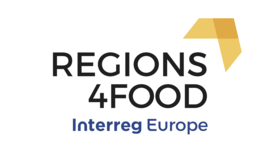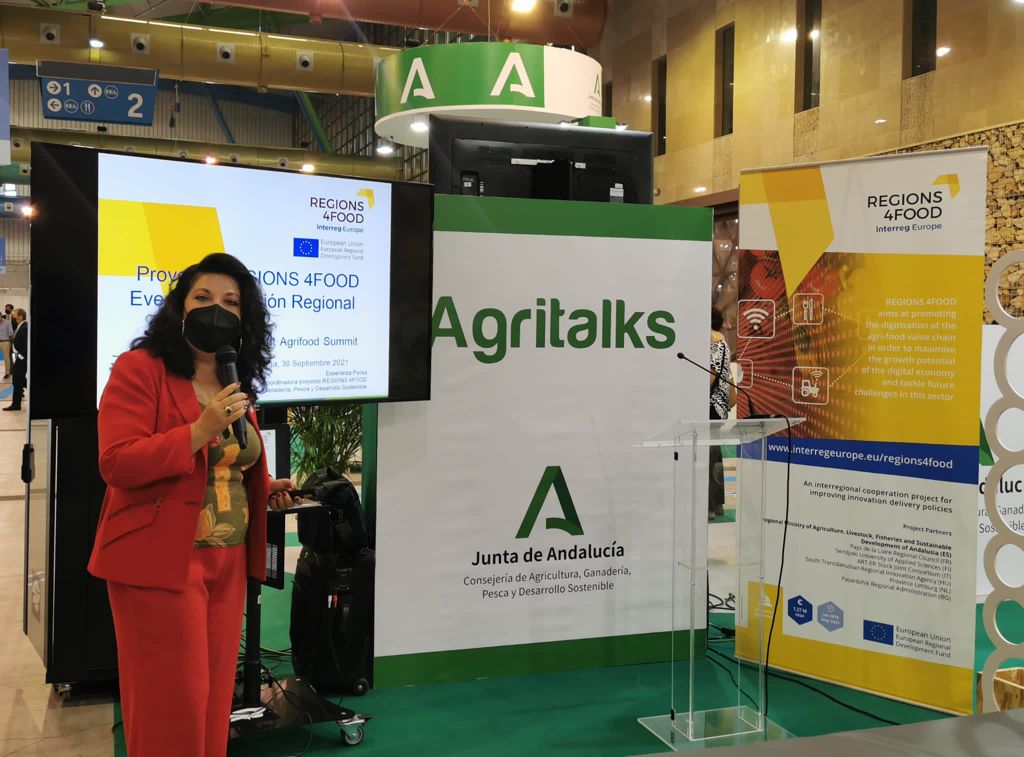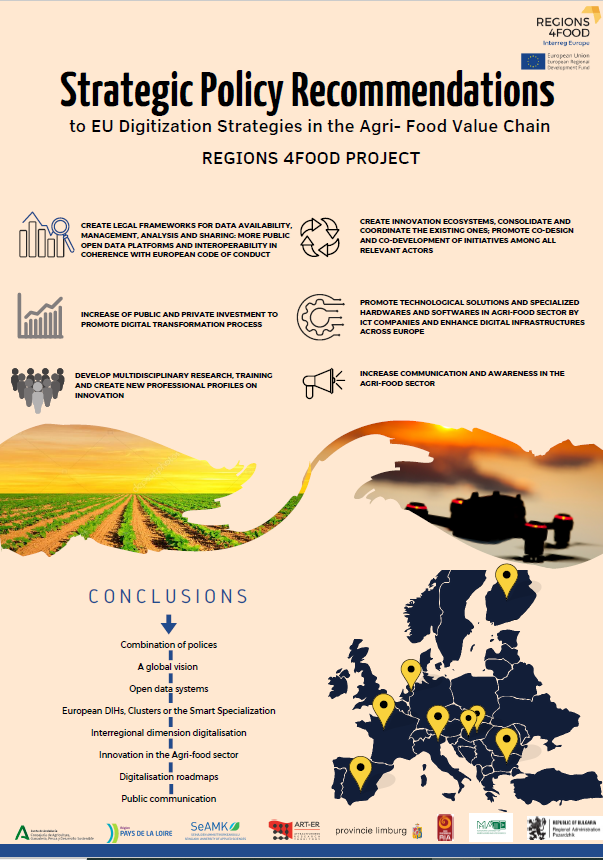On 13 September 2021, the South Transdanubia Regional Innovation Agency - hereinafter STRIA -, held the 7th stakeholder meeting of the Regions 4Food Interreg Europe project online.
At the event, the final Regions 4Food action plan supporting the digitization of the Hungarian agri-food industry was represented by Dr. Gabriella Baráth, external expert of Open Inno Kft.
The action plan itself was developed by STRIA with the professional support of Open Inno Kft. The aim of the action plan is to increase the competitiveness of the sector, to introduce digital technology applications in the sector.
The action plan envisages two actions to achieve this goal:
- Action 1: coordinates the cooperation of actors operating along the same goals in the given region, by connecting the partners already using digital technology and the companies that have been isolated so far.
- Action 2: educating the next generation with training in the higher education system, through the experience gained in agricultural farms that already use digitization in practice. The goal is to shape the attitude of the next generation and at the same time keep it in place.
The stakeholder meeting concluded with the presentation of the Regions 4Food pilot action. The action was presented by Zsolt Pálmai on behalf of STRIA.
The pilot action is based on the MSc program of the University of Seville, in cooperation with the Kaposvár Campus of the Hungarian and University of Agricultural and Life Sciences, based on the same training of the Spanish University.
In connection with the new knowledge material, the motivational goal was:
- complement (in other words: do not repeat) existing agricultural higher education and training,
- the new higher education training program should bring measurable benefits to economic actors,
- also provide lessons for digital agricultural policy.
During the presentation, the pilot action was presented in detail, both in terms of its detailed tasks and the results to be achieved. The implementation period is 14 months, ie September 1, 2021 – October 31, 2022. due between.
At the end of the discussion, the following opinions and comments were made:
- György Edgár Olasin emphasized that EDIOP and EDIOP Plus provide support for the developments indicated in the presentation, whether they are of a technological nature or serve to support disadvantaged rural (agricultural) areas. Disadvantage typically appears as a favorable judging criterion in EIDHR calls.
- Dr. Györke Diána Koponics: indicated that the experimental action will be available as an optional subject at the Hungarian University of Agricultural and Life Sciences from the academic year 2023/24 after accreditation.
The Transdanubia Region Action plan is available here.






